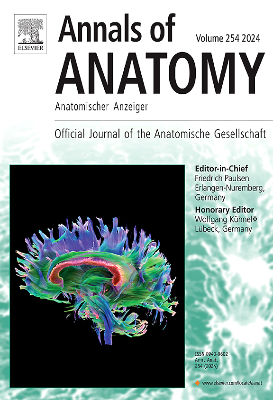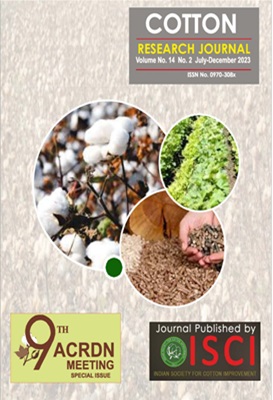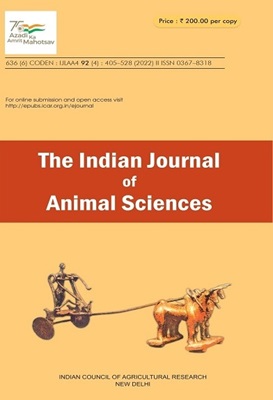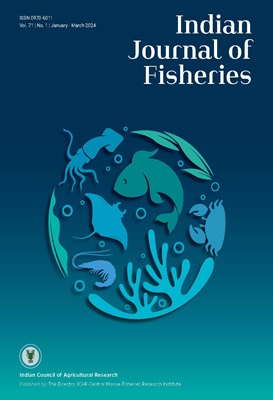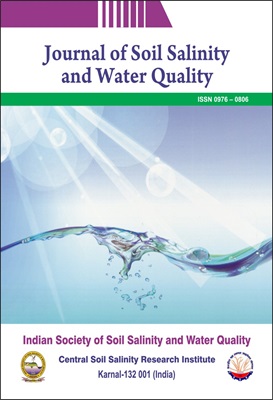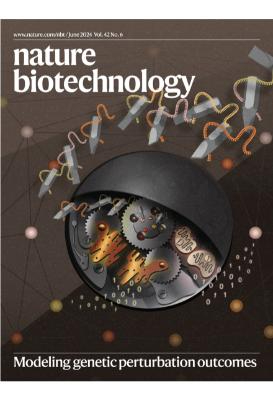Journal of Sugarcane Research
Focus and Scope Journal of Sugarcane Research is a bi-annual periodical of the Society for Sugarcane Research and Development, located at ICAR-Sugarcane Breeding Institute, Coimbatore, Tamil Nadu (India). It publishes original research articles, short research communications and review articles on basic and applied aspects of sugarcane agriculture (sugarcane improvement, genetic resources, genetics, cytogenetics, biotechnology, biochemistry, agronomy, sugarcane physiology, sugarcane soil and chemistry, microbiology, sugarcane entomology, sugarcane pathology, mechanization, economics, etc). All contributions to the journal are reviewed by referees and are selected on the basis of quality and originality of the work. Peer Review Process The objective of JSR is to publish original research articles of high standards. To ensure the quality, all articles in this journal are published after initial scrutiny by the Editorial Board followed by a review by panel of experts (referees) in the concerned discipline. The Editorial Board of JSR consists of one Chief Editor and two Associate Editors. In addition, members of well-known repute (from India and abroad) in the field sugarcane research and development are nominated by the Executive Council (EC) of the SSRD, who will assist in the scrutiny of the articles and publications of the JSR. The Chief Editor will act as Convener of the Editorial Board. The Editorial Board and Referees advise the Chief Editor, who is responsible for the final decision to accept or reject the article. For reviewing one research article, two referees in the concerned discipline are chosen from the JSR reviewer database. The trimmed manuscript containing title and abstract alone are send to the referees to obtain their consent to review the article. Then the whole manuscript (excluding authors name and affiliation) is sent to the reviewers and he/she is asked to evaluate whether the manuscript is: (i) original as to thought and method, (ii) methodologies followed are sound and acceptable, (iii) results are presented unambiguously, (iv) results are discussed with supports and in the light of previous relevant works, (v) conclusion drawn is valid and acceptable, (vi) follows appropriate ethical guidelines, especially as concerns plagiarism (copying text or results from other sources) and self-plagiarism (duplicating substantial parts of authors’ own published work without giving the appropriate references), (vii) adds to the knowledge and development of the field of sugarcane agriculture. Language correction is not part of the peer review process, but referees are encouraged to suggest corrections of language and style to the manuscript. In the normal course, the Chief Editor will make final decision to accept or reject the manuscript or ask the author for a revision may be made, on the basis of referees’ comments. Should the referees’ reports contradict one another or the report of one referee is unnecessarily delayed, the opinion of third referee will be sought. In some cases, the Chief Editor at his discretion may accept or reject the article on the basis of only one referees’ report. The Editor’s decision will be communicated to the corresponding author along with referees’ comments. The time required for the review process is dependent on the response of the referees but the typical time for the first round of the refereeing process is approximately 4 to 5 weeks, with a maximum of 2 months. Simultaneous submissions of the same manuscript to different journals is not accepted by JSR. Manuscript will be rejected outright, on grounds of lack of novelty, insufficient conceptual advance or major technical and/or interpretational problems or the contents outside the scope of the journal. All submitted manuscripts are treated as confidential documents till they are published. The Journal of Sugarcane Research follows ?double blind? reviewing process, in which the identity of the referees remain unknown to the author(s) throughout and following the refereeing process and the identity of the author(s) is unknown to the reviewers. COMPLAINT POLICY: Complaints regarding published material will be accepted within 12 months from the first publication date. In case of any complaint, the authors are required to submit their complaints along with their reasons/valid proof to the editorial office at editor.sbi@icar.gov.in Publication Frequency The journal is published twice a year in June and December respectively. Open Access Policy This journal provides immediate open access to its content on the principle that making research freely available to the public supports a greater global exchange of knowledge. Publication Ethics and Publication Malpractice Statement JSR is committed to ensuring ethics in publication and quality of articles as defined by the Committee of Publication Ethics (COPE). Publication Ethics and Publication Malpractice Statement The following are the standards of expected ethical behavior for all parties involved in publishing Journal of Sugarcane Research, including the editors, authors, and related parties. These guides are based on existing COPE’s Best Practice Guidelines for Journal Editors (https://publicationethics.org/resources/guidelines) and Elsevier policies (https://www.elsevier.com/about/policies) Responsibilities of Editors Publication Decisions: The editor of Journal of Sugarcane Research is responsible for deciding which articles submitted to the journal to publish. The editor considers recommendations of corresponding editors, as well as legal requirements regarding libel, copyright infringement, and plagiarism. The editor may consult with the editorial board or reviewers in making decisions. Fair Play: An editor should evaluate manuscripts for their intellectual content without regard to the race, gender, sexual orientation, religious belief, ethnic origin, citizenship, or the political philosophy of the authors. Confidentiality: The editor and any editorial staff must not disclose any information about a manuscript under review to anyone other than the author, reviewers (or potential reviewers), editorial advisers, or the publisher when appropriate. Duties of Reviewers Contribution to Editorial Decisions: Peer review assists the editor in making editorial decisions, and through editorial communications with the author, reviewers may also assist the author in improving the manuscript. Promptness: Any selected referee who feels unqualified to review the research reported in a manuscript, or who knows that its prompt review will be impossible, should excuse themselves from the review process by notifying the editor. Confidentiality: A reviewer receiving a manuscript must treat it as a confidential document and not show it to others or discuss it with them. Standards of Objectivity: Reviewers should submit objective comments that do not include personal criticism of the author, and they should express views clearly with supporting arguments. Disclosure and Conflict of Interest: Privileged information or ideas obtained through peer review must be kept confidential and not used for personal advantage. Reviewers should not consider manuscripts in which they have a conflict of interest resulting in undue influence over their ability to evaluate the manuscript in a professional manner. Directly competitive or collaborative relationships between the reviewer and the author seeking publication in Journal of Sugarcane Research may constitute a conflict of interest, and if the editor determines such a conflict exists, an alternate reviewer will instead evaluate the manuscript. Duties of Authors Reporting Standards: Authors of original research should present an accurate account of the work performed as well as an objective discussion of its significance. An author should accurately describe findings in the manuscript with sufficient detail and references to permit others to replicate the work. Fraudulent or knowingly inaccurate statements constitute unethical and unacceptable behavior, and they may result in disqualification from publication with the editor’s determination. Originality and Plagiarism: The authors should ensure that they have prepared entirely original work, and if the authors have used the work and/or words of others that they have appropriately cited or quoted it. Plagiarism takes many forms, from masking another author’s work as the author’s own, to copying or paraphrasing substantial parts of other works without attribution, to claiming results from research conducted by others. Plagiarism in all its forms constitutes unethical and unacceptable publishing behavior. If the editor determines it to have inadvertently taken place in an article submitted for publication, the author must comprehensively revise any area(s) in question with a failure to do so resulting in rejection of the article. Multiple, Redundant or Concurrent Publication: An author should not in general publish manuscripts describing essentially the same research in more than one journal or primary publication. Submitting the same manuscript to more than one journal concurrently constitutes unethical and unacceptable publishing behavior. If a manuscript under review appears in substantially the same form as an article published elsewhere, it is the editor’ prerogative to remove the manuscript from potential publication in Journal of Sugarcane Research Acknowledgement of Sources: Proper acknowledgment of the work of others must always be given. Authors should cite publications that have influenced the nature of the reported work. Information obtained privately, as in conversation, correspondence, or discussion with third parties, must be accompanied by explicit, written permission from the source. Information obtained in the course of confidential services, such as refereeing manuscripts or grant applications, must be accompanied by the explicit written permission of the author of the work involved in these services. Authorship of the Manuscript: Authorship should be limited to those who have made a significant contribution to the conception, design, execution, or interpretation of the material considered for publication. All those who have made significant contributions should be listed as co-authors, and others who have participated in certain substantive aspects of the research project should be acknowledged or listed as contributors. The corresponding author should include only appropriate co-authors with the manuscript, and ensure that all co-authors have seen and approved the final version of the draft and have agreed to its submission for publication. Disclosure and Conflicts of Interest: All authors should disclose in their manuscript any potential conflict of interest (financial or substantive) that might be construed to influence the results or interpretation of their work. They should disclose all sources of financial support for the project. Fundamental Errors in Published Works: If authors discover a significant error or inaccuracy in a manuscript they have published, they must promptly notify the journal editor or publisher and cooperate with the editor to retract or correct the published version of the manuscript. Authorship Authorship An author is an individual who has made substantial intellectual contributions to a scientific investigation. Authors must include their profile, including affiliation and rank, when submitting a manuscript. Submitters should fill-in the metadata related to the manuscript such as authors (In case of multiple authors, each author should be entered separately, using ADD AUTHOR option, one by one. This is very important.), keywords, references etc., A substantial intellectual contribution would require an individual to have significantly participated in one or more of the following activities, i.e., formulating the research problem, designing the study, implementing the study, interpreting and/or analyzing the results, writing and/or reviewing the research paper, and responding to critique. Authorship issue/order should be discussed early in the phase of their work. Authors should have read the manuscript submitted to JSR before print and must be prepared to take responsibility for the data, its interpretations, and conclusions made in it. For multiple authors, the order of names normally should reflect the contributions made by each of them, with the most significant contributor listed as the first author, and so on. All authors must be ready to submit written documentation of their specific contributions Gift, Ghost, or honorary authorship is not acceptable (Ghost/Gift/Guest author is someone who is listed as an author without qualifying for authorship and also someone whose name is included without permission, but meant to acknowledge) (Drawn from various sources) Sponsors Society for Sugarcane Research and Development Journal History Published since June 2011.
| Publication Language |
English |
|---|---|
| Publication Access Type |
Open Access |
| Publication Author |
* |
| Publisher |
ICAR |
| Publication Year |
2024 |
| Publication Type |
eJournals |
Kindly Login to ICAR Digital Library Portal.






